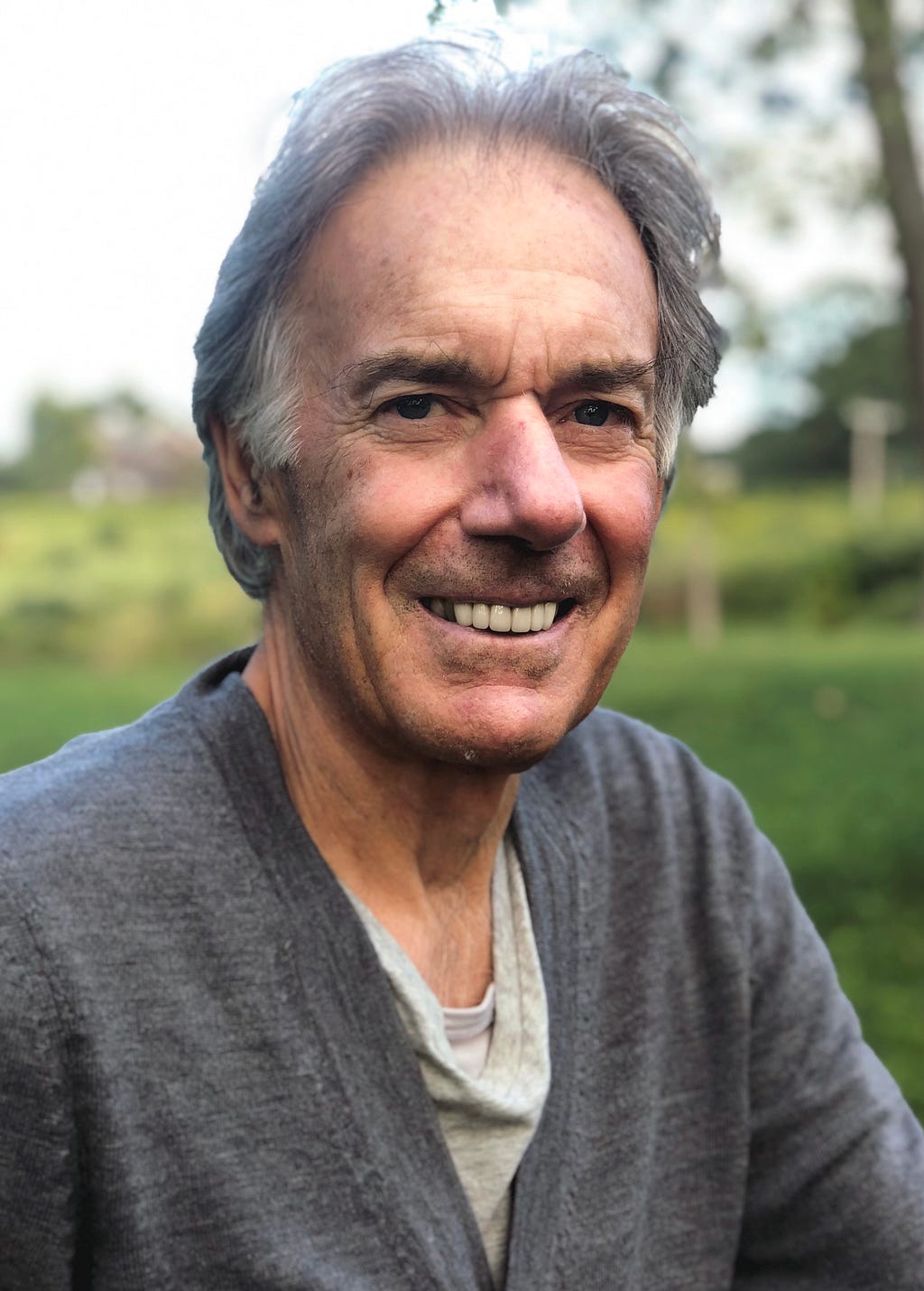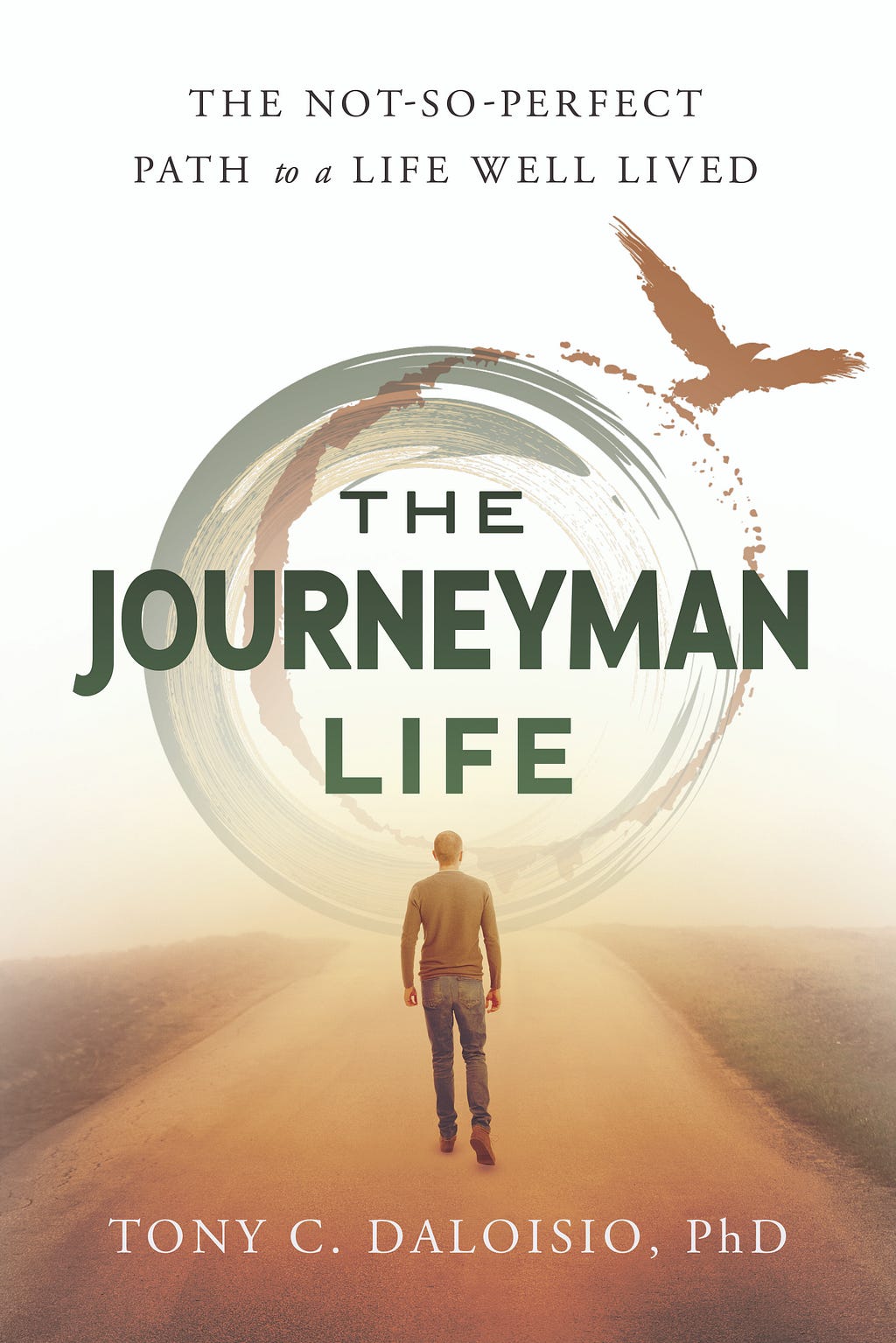An Interview With Candice Georgiadis

Get a clear sense of who you are by looking in the mirror and asking other people for feedback. Ask and answer the question “how am I really showing up in life, what’s working for me and what’s not working?” Be honest with yourself. Ask people how they see you and how they think and talk about you when you’re not with them. One of the ways that I do this with my clients is to ask him to share three stories about themselves the first story is their public persona how they like to be seen in the world. The second story is the story of their private life how they think and feel inside of themselves in their most quiet moments. The third story is the future story who is it that they want to be what are their values what is your sense of mission and purpose in life.
As a part of my series about the “5 Things Anyone Can Do To Optimize Their Mental Wellness”, I had the pleasure of interviewing Dr. Tony Daloisio.
Tony Daloisio is an organizational psychologist, Professor, CEO and author of two books in the field. He works with CEO’s and executive teams as an advisor regarding leadership, strategy implementation, team building and culture change. His books include: Change the Way you Change and The Journeyman Life, both available on Amazon and other booksellers.

Thank you so much for doing this with us! Our readers would love to “get to know you” a bit better. Can you share with us the backstory about what brought you to your specific career path?
I have always been fascinated with leadership, and how organizational change takes place. The more that I worked with leaders I continued to find that the real key to their success was their own level of personal development and self-awareness. I too have been passionate about personal self-development, and it worked hard on both the inside personal skills for myself and the outer more interpersonal skills to be as effective as a person and leader as I can be. I have come to find out that there are three key areas that are highly correlated with optimal mental health and leadership: The first area involves an in depth understanding of your core operating system as an individual. This operating system originates from your early attachment maps and views of the world and becomes your core beliefs that operate repeatedly over your life producing specific results. The second area is related to the skills and behaviors in your in your relative self-awareness of those skills and behaviors I called that an operating system for your life. The third area that seems to have the biggest impact on optimal mental health we could call spiritual or a sense of meaning in your life and knowledge of your core values or mission in life. I have dedicated my career to the teaching and research and application of these three areas to optimal mental health and overall leadership effectiveness in life.
Can you share the most interesting story that happened to you since you started your career?
In one of my projects helping a major newspaper to evolve itself to keep current with the changing times, I found that until the leader decides to change his/herself, nothing changes. I worked with one leader who I coached through that journey of self-discovery and when he was right with himself, everything changed in the business and the newspaper achieved great success ever sense that moment.
Can you share a story with us about the most humorous mistake you made when you were first starting? What lesson or take-away did you learn from that?
I was so uncomfortable pricing my consulting work initially, I think it is difficult to put a price on your head! The lesson is that we have to “own” our own value and put it out in the world. If we don’t value ourselves, how can anyone else?
None of us can achieve success without some help along the way. Is there a particular person who you are grateful towards who helped get you to where you are? Can you share a story about that?
My dear friend Jonathan, was my teacher and guide, early in my career, he and I learned so much about organizational consulting processes and success through trial and error. Working with a partner and giving and receiving feedback is critical always to success, and you must constantly nurture and feed the relationship and never take it for granted. He and I had a difficult time around a business venture that turned out poorly and he turned away from our relationship and I have always regretted this. The lesson is to cherish these friendships and know that the building of trust is sacred.
What advice would you suggest to your colleagues in your industry to thrive and avoid burnout?
Focus on your values and schedule your life to have balance in all areas, don’t wait for the “white water” of the daily life to take over your life. You must be strong and have standards that are based on those values. As an example, I have always managed my schedule and keep it tight to my own self and care and feed my needs first.
What advice would you give to other leaders about how to create a fantastic work culture?
Get in touch, ask, listen to everyone in the organization to find out who they are and what is important to them in life and at work! Get to know them personally. Relationships that are based on trust and care trump anything else. Research shows that folks at work need three things to feel that their work and culture is meaningful, a sense of purpose, a standard of excellence and a feeling of belonging!
Ok thank you for all that. Now let’s move to the focus of our interview. Mental health is often looked at in binary terms; those who are healthy and those who have mental illness. The truth, however, is that mental wellness is a huge spectrum. Even those who are “mentally healthy” can still improve their mental wellness. From your experience or research, what are five steps that each of us can take to improve or optimize our mental wellness. Can you please share a story or example for each?
- Get a clear sense of who you are by looking in the mirror and asking other people for feedback. Ask and answer the question “how am I really showing up in life, what’s working for me and what’s not working?” Be honest with yourself. Ask people how they see you and how they think and talk about you when you’re not with them. One of the ways that I do this with my clients is to ask him to share three stories about themselves the first story is their public persona how they like to be seen in the world. The second story is the story of their private life how they think and feel inside of themselves in their most quiet moments. The third story is the future story who is it that they want to be what are their values what is your sense of mission and purpose in life.
- The second step is it critical one it involves searching and understanding the origins of your core beliefs and what I call a core operating system. What are some of the driving forces in your life both on the positive side the values and sense of meaning in your life, and on the negative side the reactive part of you that generates from your voices inside a few that drive a lot of your behavior. Those voices often come from some core fears or beliefs that you have in your life that are not always effective.
- The third step involves upgrading your skills and mindset and involves learning, reading, reflection, journaling and “big talk conversations” with others around meaningful topics about yourself, life, relationships and relating in general. In my recent book, The Journeyman Life, I discuss this step as the inner skills and the outer skills of life effectiveness. The inner skills are things like self-awareness, self-regulation, mindfulness, and the ability to choose effective paths in making decisions. The outer skills include having a growth mindset having a positive self-image and having effective communication skills. The idea here is that you can’t expect to have positive mental health unless we work on improving ourselves in these critical areas of our life on a day-to-day basis.
- The 4th step it involves upgrading your operating system. Your operating system is how you leave your day-to-day life. This means that you must be very aware of moments of truth in your life that otherwise would cause you to be reactive and say or do things that you would regret. This involves a 3-step process of awareness of feelings or activation, a pause with breath and then a conscious note to yourself to respond based on values, listening, showing care for the other and digging deeply into what is right to do and how to keep open and loving in the situation.
- The last step for your optimal mental health is to give back to others, to help another, be in the stewardship of others less fortunate. I know that this sounds a bit strange but the idea of taking care of another and giving back to humanity maybe one of the most effective ways to help yourself to gain some self-respect and increase your health.
How about teens and pre-teens. Are there any specific new ideas you would suggest for teens and pre-teens to optimize their mental wellness?
Read inspirational books, autobiographies of great lives of people and spend time focusing on your own values in life, and what is important to you.
Is there a particular book that made a significant impact on you? Can you share a story?
Yes, for sure, the 7 Habits of Highly Effective People by Stephen Covey.
Can you please give us your favorite “Life Lesson Quote”? Do you have a story about how that was relevant in your life?
You cannot lead others at a higher level than you are leading yourself! Source unknown. It certainly has been critical in my own life and noticing how critical it is to leaders in trying to change their organizations for the better. I find for myself, that when I change and grow my relationships and by surround changes for the better.
What is the best way our readers can follow you on social media?
www.thejourneymanlife.com or www.changethewayyouchange.com
Thank you for these fantastic insights. We wish you only continued success in your great work!
Thank you and the same to all of your readers.
Dr Tony Daloisio: 5 Things Anyone Can Do To Optimize Their Mental Wellness was originally published in Authority Magazine on Medium, where people are continuing the conversation by highlighting and responding to this story.

